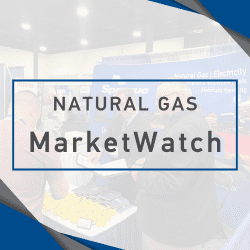Recap: It was a lackluster day for oil prices on Tuesday, with the market garnering little support from expectations for a second weekly decline in U.S. crude oil inventories. Prices bounced back from Monday’s sharp decline off of the rise in the number of COVID-19 cases, as some countries considered renewing restrictions. Traders remain uncertain about the two-months remaining for the U.S. hurricane season and its impact on industry infrastructure, and the potential of a second wave of the coronavirus as we approach winter months. The expiring October WTI added 29 cents, or 0.7%, going off the board at $39.60 a barrel. The new spot month November contract edged up 26 cents, or 0.7%, to settle at $39.80 a barrel. Brent for November delivery tacked on 28 cents, or 0.7%, to settle at $41.72 a barrel. October RBOB slipped 1.1% to $1.1643 a gallon, while October heating oil settled at $1.0961 a gallon, down 1%.
Market Outlook: WTI appears to be at a level of exhaustion, with this market unable to produce higher highs, as it continues to pull away from the 50-day moving average. We are sticking with trying to sell into rallies, while keeping an eye on the U.S. dollar, which has strengthened. We continue to look for downward pressure with a run toward $36. Support below this level is set at $34.99. To the upside, resistance is set at $40.53 and above that at $41.42.
Fundamental News: Libya's National Oil Company said it expected oil production to increase to 260,000 bpd next week, as the country looks to revive its oil industry, crippled by a blockade since January. It stated that it was lifting force majeure at the eastern Zueitina oil port after conducting security assessments at the terminal and connected fields. Late Monday, NOC said it is preparing to resume exports from "secure ports" with oil tankers expected to begin arriving from Wednesday to load crude in storage over the next 72 hours. It said exports are set to resume from the Marsa El Hariga and Brega oil terminals. Eastern Libyan commander Khalifa Haftar said last week his forces would lift their eight-month blockade of oil exports. Libya’s crude oil production fell to 70,000-120,000 bpd in the past few months compared with 1.1 million bpd before the blockade.
The U.S. Department of Transportation reported that U.S. motorists drove 262.4 billion vehicle miles in July, 33.2 billion vehicle miles fewer than the same month a year earlier. The largest year-on-year declines were in the Northeast at 15.4% and the South Atlantic at 11.3%.
Federal Reserve Chair, Jerome Powell, told a congressional panel that America’s economy has shown “marked improvement” since the coronavirus pandemic drove it into recession, but the path ahead remains uncertain and the U.S. central bank will do more if needed. The hearing, which included testimony from Treasury Secretary Steven Mnuchin, is the first of three this week at which the Fed chief will field questions on the central bank’s response to the pandemic and its implementation of the Coronavirus Aid, Relief and Economic Security Act. The Treasury Secretary said he felt the economy “will see tremendous third-quarter growth, fueled by strong retail sales, housing starts and existing home sales, manufacturing growth and increased business activity. He said a further “targeted package” of fiscal relief was needed.
Chicago Federal Reserve President, Charles Evans, said the U.S. economy risks a longer, slower recovery, if not another outright recession, if Congress fails to pass a fiscal package to support out-of-work Americans and state and local governments. His forecast for the U.S. unemployment rate to fall to 5.5% by the end of next year assumes not just a vaccine for the coronavirus but also a U.S. fiscal package of at least $500 billion or $1 trillion. He said the Fed still needs to discuss its new average inflation target, including when it would “start the clock” on any period for average inflation. However, he emphasized there would be no formula.
Early Market Call – as of 8:30 AM EDT
WTI – Nov $39.90, up 10 cents
RBOB – Oct $1.1829, up 1.86 cents
HO – Oct $1.1034, up 73 points
View the Sprague Refined Products Market Watch Report in a downloadable pdf format by clicking below.
Click to view more online:
Heating Oil Supplier
Diesel Supplier
View market updates
View our refined products glossary
Go to SpraguePORT online










